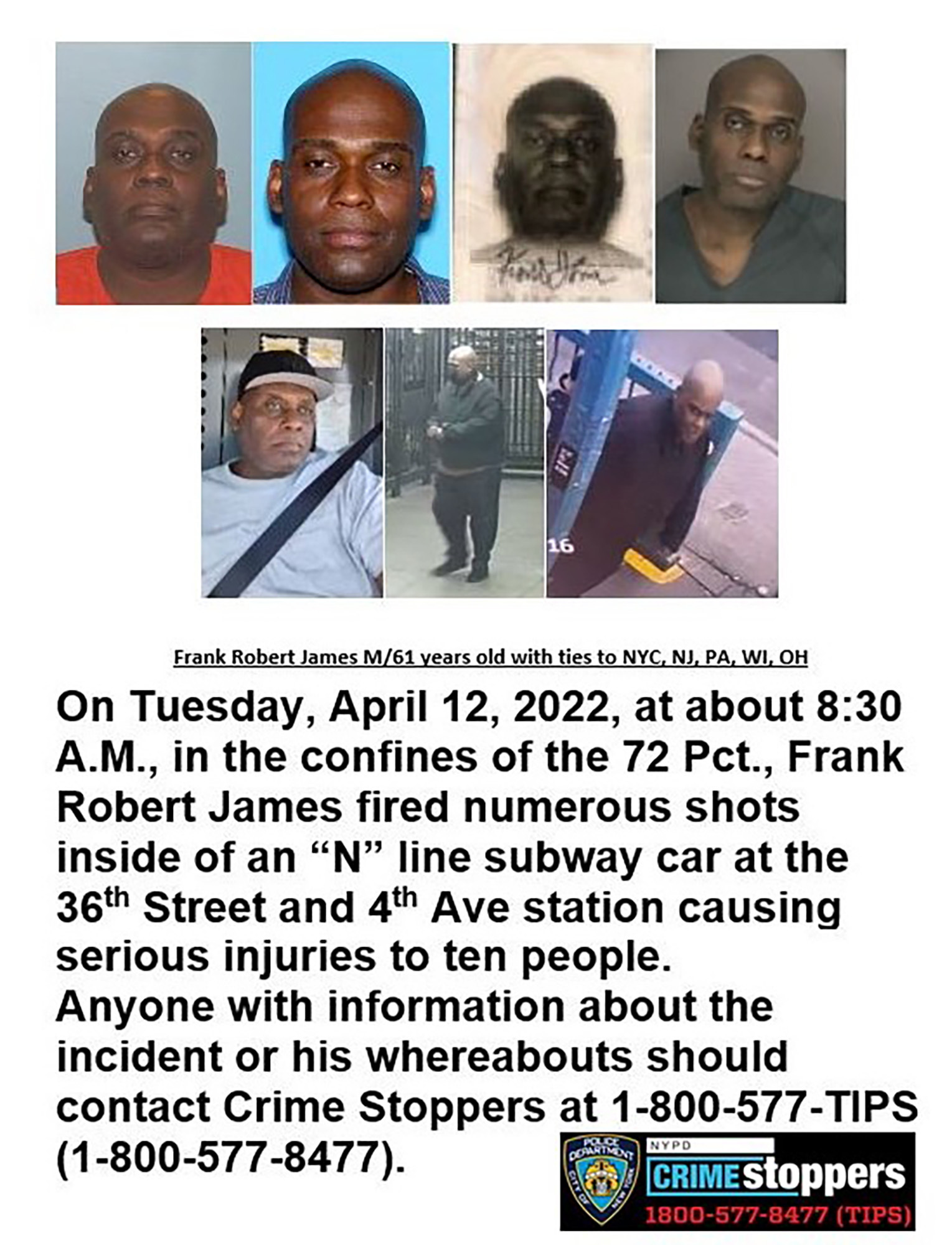Brooklyn subway shooter shares dark past as his attorney pleads for leniency

This image provided by the New York City Police Department shows a Crime Stoppers bulletin displaying photos of Frank Robert James, the man behind the Brooklyn subway attack. He asked for 18 years instead of a 32-37 year sentence, as his attorney cites a lifetime of trauma and mental illness in a plea for leniency. The image was produced on April 13, 2023, a day after the attack.
Photo courtesy of NYPD/AP
Photo courtesy of NYPD/AP
An attorney for Frank Robert James, the man who unleashed terror on a crowded Brooklyn subway train, injuring 10 and inciting panic during rush hour in 2022, has sought leniency from the court ahead of sentencing.
James, 64, accepted responsibility for the crimes earlier this year, confessing to all 11 charges against him, including committing a terrorist act on a mass transit system and discharging a firearm during a violent act.
While federal prosecutors have advocated for a prison sentence ranging from 32 to 37 years, Mia Eisner-Grynberg, James’ attorney, has requested 18 years. She argues that due to James’ age, health, and the reduced life expectancy of inmates, it is doubtful he would survive the entirety of the proposed sentence.